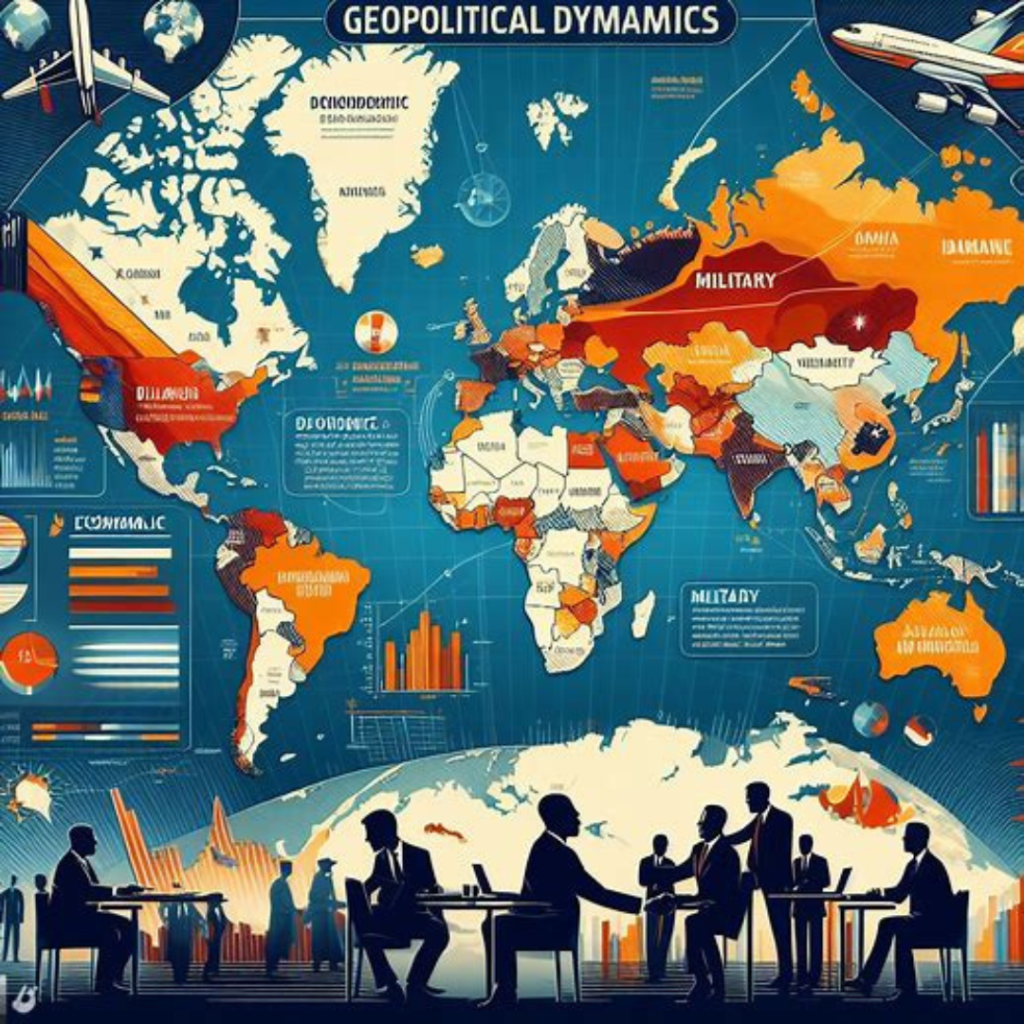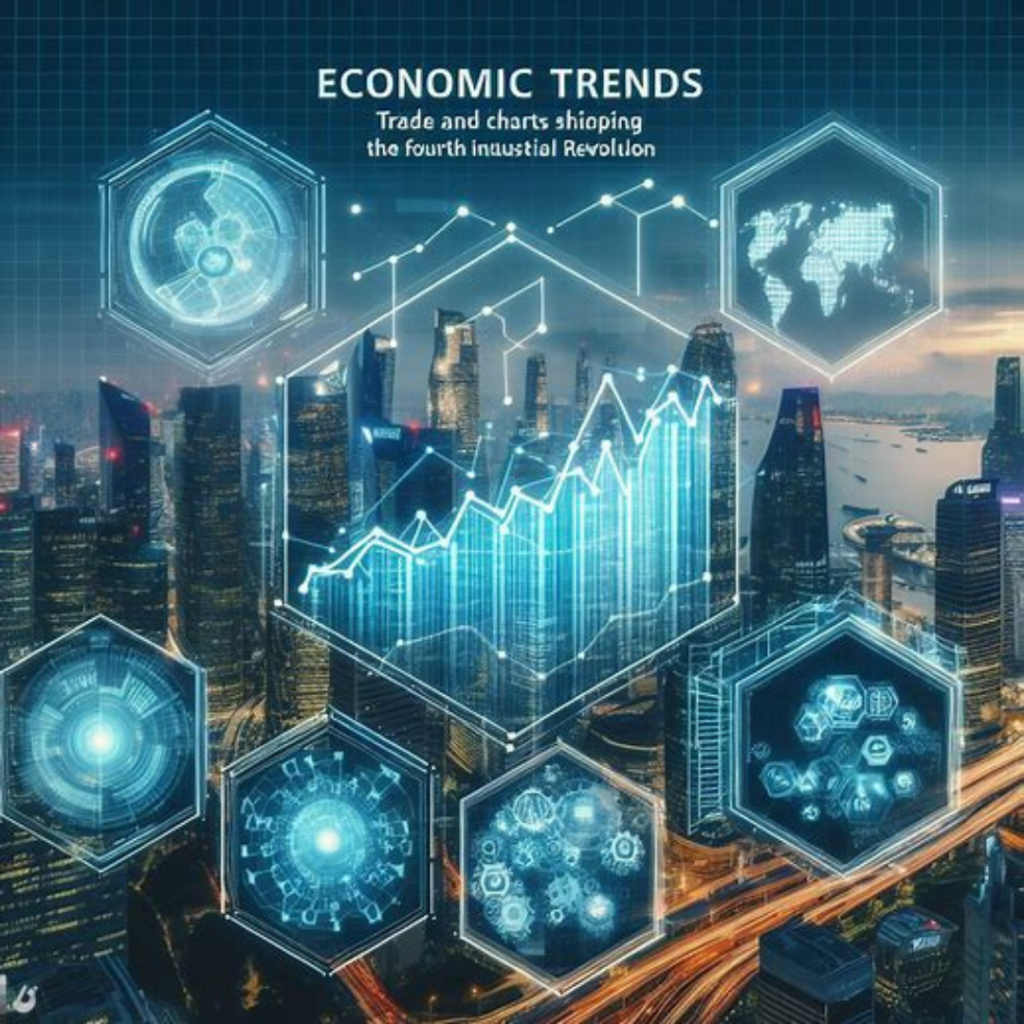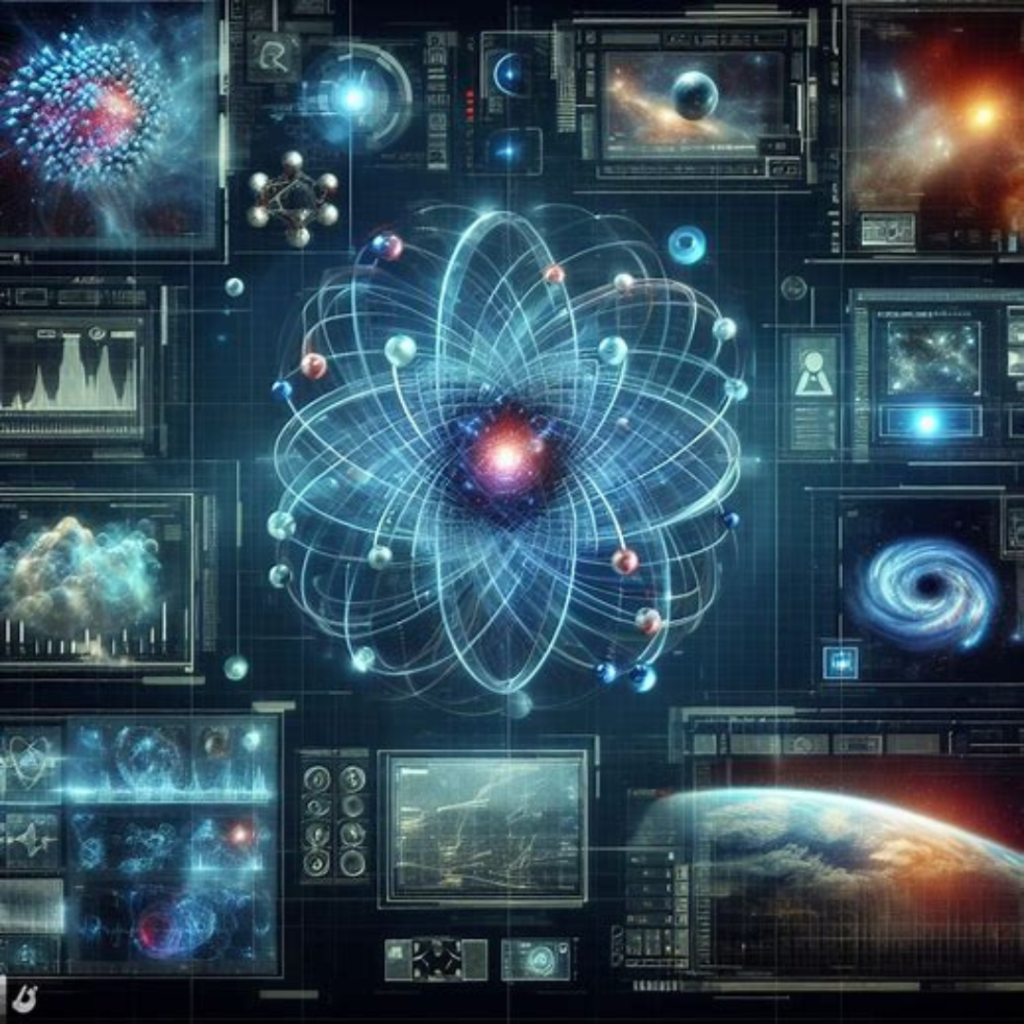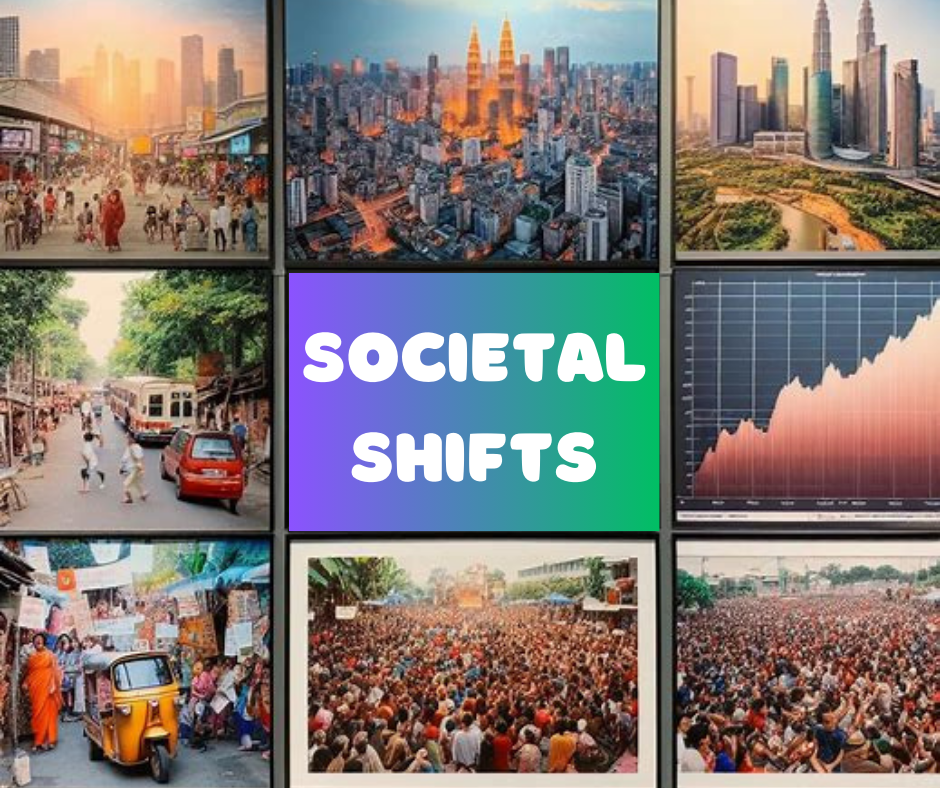Global Dynamics 2024: A Tapestry of Transformations

In the ever-evolving landscape of international affairs, the year 2024 stands as a pivotal moment marked by transformative changes, global challenges, and unprecedented opportunities. From geopolitical shifts to technological advancements, the world is witnessing a dynamic interplay of forces that shape the course of nations and impact the lives of individuals worldwide. This comprehensive blog post aims to delve into various facets of the contemporary global panorama, offering insights into politics, economics, technology, and societal trends.
Geopolitical Dynamics
Geopolitical dynamics in 2024 are characterized by a complex interplay of factors that shape the relationships between nations, influence global governance, and impact the course of international events. As we delve into the current geopolitical landscape, several key trends and developments come to the forefront:

- Rise of Multipolarity: The traditional power structure, dominated by a handful of major powers, is undergoing a transformative shift. The rise of emerging economies, notably China and India, is challenging the hegemony of established superpowers like the United States. This trend towards multipolarity is reshaping global power dynamics, with nations increasingly pursuing strategic alliances and partnerships to assert their influence on the world stage.
- Strategic Alliances and Rivalries: Geopolitical alignments are evolving as nations seek to protect their interests and navigate a rapidly changing international order. Strategic alliances are being forged based on shared economic, political, or security interests. At the same time, rivalries and conflicts persist, often fueled by historical grievances, territorial disputes, or competition for regional dominance.
- Technological Competition: The race for technological supremacy has become a defining aspect of geopolitical competition. Nations are vying for leadership in key technological domains such as artificial intelligence, quantum computing, and 5G infrastructure. The control and influence over emerging technologies are not only crucial for economic growth but also have significant implications for national security and strategic advantage.
- Climate Change as a Geopolitical Issue: Climate change has transcended its role as an environmental challenge and has become a central focus of geopolitical discussions. Nations are recognizing the need for collective action to address the impacts of climate change, mitigate environmental risks, and transition to sustainable energy sources. Climate-related agreements and policies are shaping diplomatic relations and influencing global cooperation.
- Regional Hotspots and Conflicts: Several regions remain flashpoints for geopolitical tensions and conflicts. The Middle East, with ongoing conflicts in Syria, Yemen, and the Israeli-Palestinian dispute, remains a focal point. In Eastern Europe, tensions persist between Russia and NATO, impacting regional security. Understanding the dynamics of these regional hotspots is crucial for anticipating geopolitical developments.
- Economic Interdependence and Trade Wars: Economic considerations play a significant role in shaping geopolitical dynamics. Global economic interdependence has increased, with nations relying on each other for trade and investment. However, trade tensions and protectionist measures, often driven by nationalist sentiments, can strain relations and lead to economic conflicts. The balance between economic cooperation and competition is a delicate aspect of contemporary geopolitics.
- Cybersecurity Challenges: The digital realm has emerged as a new theater for geopolitical competition. Cybersecurity challenges, including state-sponsored cyberattacks and espionage, are on the rise. Nations are investing in cybersecurity capabilities to protect critical infrastructure, sensitive information, and maintain a strategic edge in the digital domain.
In navigating these geopolitical dynamics, nations must strike a delicate balance between asserting their interests, fostering international cooperation, and addressing the shared challenges that define the 21st century. The ability to adapt to this evolving landscape will be critical for shaping a more stable and cooperative global order.
Economic Trends
The economic landscape in 2024 is characterized by a confluence of factors, including rapid technological advancements, global trade dynamics, and ongoing efforts towards sustainability. Examining these economic trends provides valuable insights into the challenges and opportunities facing nations and businesses worldwide:

- Digital Transformation and the Fourth Industrial Revolution: The Fourth Industrial Revolution, marked by the integration of digital technologies, artificial intelligence, and automation, is reshaping industries and economies. Businesses are adopting advanced technologies to enhance efficiency, reduce costs, and gain a competitive edge. The transformative impact of digitalization is not limited to specific sectors but is pervasive, influencing everything from manufacturing to services.
- Automation and Job Displacement: The widespread adoption of automation technologies raises concerns about job displacement and the changing nature of work. While automation enhances productivity, it also poses challenges related to workforce reskilling and the potential for increased income inequality. Governments and businesses are grappling with the need to strike a balance between technological innovation and social implications.
- Global Trade Dynamics: Global trade continues to be a driving force in the world economy. However, geopolitical tensions and protectionist measures have disrupted established trade patterns. Nations are reevaluating their trade policies, diversifying supply chains, and exploring regional economic alliances. The balance between protectionism and free trade remains a key consideration for policymakers.
- Sustainable Development Goals (SDGs): The pursuit of sustainability is gaining prominence on the economic agenda. Governments and businesses are aligning their strategies with the United Nations’ Sustainable Development Goals (SDGs), addressing issues such as climate change, poverty, and inequality. Sustainable practices are becoming integral to corporate responsibility, influencing consumer choices, and shaping regulatory frameworks.
- Rise of E-commerce and Digital Economies: E-commerce has experienced exponential growth, accelerated by changes in consumer behavior and advancements in digital payment systems. The digital economy is expanding, with online platforms playing a crucial role in facilitating transactions, fostering entrepreneurship, and connecting global markets. The shift towards digital economies presents both challenges and opportunities for traditional businesses and policymakers.
- Inflationary Pressures and Central Bank Policies: Inflationary pressures, influenced by factors such as supply chain disruptions and increased demand, pose challenges to economic stability. Central banks are implementing monetary policies to manage inflation while supporting economic growth. Striking the right balance between stimulating the economy and preventing overheating is a delicate task for policymakers.
- Rapid Technological Advancements in Finance (FinTech): The financial sector is experiencing rapid technological advancements, with FinTech innovations revolutionizing traditional banking and financial services. Blockchain technology, digital currencies, and decentralized finance (DeFi) are reshaping the financial landscape, offering new possibilities for efficiency, transparency, and financial inclusion.
- Resilience Planning in the Face of Global Shocks: The world is increasingly recognizing the importance of resilience planning in the face of global shocks, such as pandemics or geopolitical crises. Businesses and governments are reevaluating supply chain strategies, diversifying sources of critical materials, and enhancing preparedness to mitigate the impact of unforeseen disruptions.
Understanding and adapting to these economic trends are essential for policymakers, businesses, and individuals alike. Navigating the complexities of the modern economic landscape requires a proactive approach that embraces innovation, sustainability, and inclusive growth. As the world continues to evolve, the ability to anticipate and respond to these economic dynamics will be crucial for building resilient and thriving economies.
Technological Frontiers
The technological frontiers of 2024 are marked by unprecedented advancements that are transforming the way we live, work, and interact. From artificial intelligence (AI) to cybersecurity, the technological landscape is dynamic and influential. Here are key aspects of the technological frontiers shaping the world:

- Artificial Intelligence (AI) and Machine Learning: AI is at the forefront of technological innovation, influencing various sectors. Machine learning algorithms are becoming more sophisticated, enabling applications in healthcare, finance, manufacturing, and more. Ethical considerations surrounding AI, including bias in algorithms and job displacement, are critical topics for discussion and regulation.
- Quantum Computing: Quantum computing is emerging as a game-changer in computational power. Quantum computers have the potential to solve complex problems exponentially faster than classical computers, with applications ranging from cryptography to drug discovery. As research progresses, the race for quantum supremacy is intensifying among nations and tech companies.
- 5G Technology: The deployment of 5G networks is revolutionizing communication and connectivity. With significantly higher speeds and lower latency, 5G enables innovations such as the Internet of Things (IoT), smart cities, and augmented reality. However, concerns related to cybersecurity and the potential health effects of 5G technology continue to be topics of debate.
- Cybersecurity Challenges: The increasing reliance on digital technologies brings forth new challenges in cybersecurity. Cyber threats, including ransomware attacks and state-sponsored hacking, pose risks to individuals, businesses, and governments. Strengthening cybersecurity measures and international cooperation are essential to safeguarding digital infrastructure.
- Biotechnology and Genetic Engineering: Advancements in biotechnology, including CRISPR gene editing, are opening new frontiers in healthcare, agriculture, and beyond. The ability to modify genetic material has profound implications for treating genetic diseases, enhancing crop yields, and addressing environmental challenges. Ethical considerations and responsible use of biotechnology remain critical aspects of this frontier.
- Augmented and Virtual Reality (AR/VR): AR and VR technologies are transforming the way we experience and interact with the digital world. Applications range from immersive gaming and entertainment to training simulations in healthcare and industry. As these technologies become more accessible, their impact on education, training, and entertainment is set to grow.
- Internet of Things (IoT): The IoT is expanding, connecting an increasing number of devices and systems. From smart homes to industrial automation, IoT applications enhance efficiency and enable data-driven decision-making. Managing the security and privacy implications of the growing IoT ecosystem is a significant challenge.
- Blockchain and Decentralized Finance (DeFi): Blockchain technology, known for its secure and transparent decentralized ledger, is disrupting traditional industries. In finance, the rise of decentralized finance (DeFi) is reshaping how transactions and financial services operate. The potential for blockchain extends beyond finance, with applications in supply chain management, healthcare, and more.
- Edge Computing: Edge computing involves processing data closer to the source of generation rather than relying solely on centralized cloud servers. This approach reduces latency and enhances real-time processing, making it crucial for applications like autonomous vehicles and smart cities.
- Space Exploration and Satellite Technologies: Advances in space exploration and satellite technologies are unlocking new possibilities, from satellite-based internet services to lunar exploration. Private companies are playing a significant role in shaping the future of space exploration, with implications for telecommunications, Earth observation, and scientific research.
Navigating the technological frontiers of 2024 requires a balance between embracing innovation and addressing the ethical, security, and societal implications of these advancements. As these technologies continue to evolve, their impact on various aspects of our lives will shape the future of humanity in ways that are both exciting and challenging.
Societal Shifts
Societal shifts in 2024 reflect a complex interplay of demographic changes, global health challenges, and evolving cultural norms. Understanding these shifts is crucial for individuals, communities, and policymakers as they navigate the ever-changing dynamics of modern society. Here are key aspects of societal shifts in 2024:

- Demographic Changes: Demographic transitions continue to reshape societies worldwide. Aging populations, declining birth rates, and changing family structures are influencing the socio-economic landscape. The implications include increased demand for healthcare services, changes in pension and retirement policies, and adjustments to workforce dynamics.
- Urbanization and Megacities: The trend of urbanization persists, with more people migrating to cities in search of economic opportunities. Megacities are emerging as hubs for innovation, culture, and commerce. However, the rapid urbanization also brings challenges related to infrastructure, housing, and environmental sustainability.
- Remote Work and Flexible Employment: The COVID-19 pandemic accelerated the adoption of remote work, leading to a fundamental shift in how people approach their careers. Flexible employment arrangements, including remote and hybrid work models, have become more commonplace. This shift has implications for work-life balance, office culture, and the design of urban spaces.
- Global Health Challenges: The global health landscape is a driving force behind societal changes. The COVID-19 pandemic highlighted the interconnectedness of nations and the importance of robust healthcare systems. Societies are reevaluating public health policies, investing in pandemic preparedness, and addressing issues such as vaccine distribution and healthcare disparities.
- Mental Health Awareness: Mental health has gained increased attention, with societies recognizing the importance of destigmatizing mental health issues and promoting well-being. Employers, educational institutions, and communities are investing in mental health support services and creating environments that foster psychological resilience.
- Social Justice Movements: Social justice movements advocating for equality, diversity, and inclusion are shaping societal attitudes and policies. Issues such as racial justice, gender equality, and LGBTQ+ rights are at the forefront of public discourse. Activism and advocacy efforts are influencing legislative changes and corporate practices.
- Environmental Consciousness: Environmental awareness and sustainability have become integral to societal values. Individuals and businesses are adopting eco-friendly practices, and there is a growing demand for sustainable products and services. Governments are implementing policies to address climate change, reduce carbon emissions, and promote renewable energy sources.
- Technological Influence on Relationships: The pervasive influence of technology is impacting social interactions and relationships. From online communication to social media, technology is shaping how individuals connect and maintain relationships. The challenge lies in balancing the benefits of connectivity with concerns related to privacy, digital well-being, and the potential for social isolation.
- Education Transformation: The education sector is undergoing a transformation, with a shift towards personalized and technology-enhanced learning. Online education platforms, digital resources, and innovative teaching methods are reshaping traditional education models. Access to quality education and digital literacy are critical considerations in this evolving landscape.
- Cultural Adaptation and Diversity: Societal shifts also encompass cultural adaptation and the celebration of diversity. Cultures are evolving, and societies are becoming more inclusive and open to diverse perspectives. Recognizing and embracing cultural diversity contribute to the richness of societal experiences.
In navigating these societal shifts, individuals and communities must remain adaptable, open-minded, and socially conscious. Policymakers play a crucial role in addressing the challenges and opportunities presented by these shifts, ensuring that policies promote inclusivity, sustainability, and the well-being of diverse populations.
Conclusion: Shaping a Collective Future
In the midst of transformative changes, the year 2024 serves as a pivotal moment for individuals, communities, and nations to collectively shape the future. The intricate interplay of geopolitical, economic, technological, and societal forces underscores the interconnected nature of our world. Navigating this landscape requires a shared commitment to collaboration, ethical practices, and inclusive policies.

As we move forward, it is essential to recognize the shared responsibility we hold for the well-being of our global community. Whether addressing geopolitical tensions, advancing economic inclusivity, embracing technological innovations, or navigating societal shifts, a collective approach ensures that the challenges of today become the opportunities of tomorrow.
In shaping a collective future, the choices we make today will echo across borders and generations. By fostering cooperation, understanding, and resilience, we can collectively build a world that reflects our shared aspirations for peace, prosperity, and progress. As we stand at the crossroads of 2024, let us embark on this journey together, mindful of the interconnected threads that weave our destinies on the global stage.
Disclaimer
The views expressed in this blog post are for informational purposes only. The content provided does not constitute professional advice, and readers are encouraged to consult relevant experts for specific guidance.
Don’t miss out – subscribe now for the latest updates and insights!

